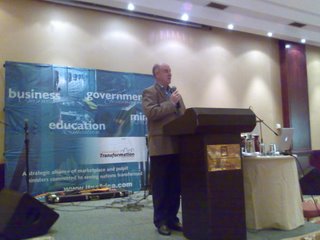Pastoral care to Christians in the World of Work
 Saturday, June 28, 2014 at 12:22AM
Saturday, June 28, 2014 at 12:22AM This week I had the joy of speaking at a number of sessions at the Alpha Workplace Conference in Kuala Lumpur, Malaysia - as always it was wonderful to be with my friends here and such a great blessing to see how the Church sensitively operates in this context.
At today's session I was asked to post the slides from my talk to the internet. So, please find a copy of the slides (which are an 'un-formatted' copy, i.e., they do not have the Alpha branding and style sheet applied).
Then, for a description of the content here is part of a post from 2008 when I first developed this theology. You can also download a 30 minute Audio recording for Radio Pulpit that discusses these ideas here: '5 paradigms that could change your work into worship' here (6MB MP3). If you are interested here is a short preview of the book in which I wrote about the 5 paradigms - 'Transform your work life: Turn your ordinary day into an extraordinary calling' (1MB PDF). If you are interested in buying a copy of the book you can get it on Amazon here. Finally, I have just recently been notified that an academic article that I wrote on research done among Christians in South Africa the world of work and Christian needs, is being published in the Journal 'Koers: Bulletin for Christian Scholarship' - if you are interested to read that article please drop me an email and I'll let you know when it is published.
Here is the little video clip that I used (which was recorded a few years ago with Graham Power).
My ministry changed radically about 9 years ago when a wealthy business person came to faith in Christ. He is a gifted and capable person who had made an incredible success of his companies. My first inclination, when he asked how he could serve the Lord, was to suggest that he get involved in the leadership of our Church, or perhaps run our Church's finance commission (clearly he was a gifted leader and a person who knew how to work with money). If I had suggested that to him the result may have been two things.
1) I may have helped one Methodist Church in a single city of South Africa to develop.
2) I'm fairly certain that in the process this new Christian would have become bored and frustrated with the task I had assigned him to and he would have moved on.Thankfully I was dumb enough NOT to get him into that position - rather I invited him to join a small group that I was running specifically for business people. Here I knew his peers could start to disciple him on things like Christian worship, loving service, stewardship and the use of his influence and resources for Christ's Kingdom... The long and short of it is that the person I am talking about is Graham Power, who went on to start the Global Day of Prayer(which this year had between 300 and 400 million persons participating).
Graham has become a significant figure in world Christianity. God has used him to bring new excitement, passion, and drive to many Churches and denominations worldwide. Equally significant has been his influence among his peers (all leaders in their own right, either in business or politics) who have made some significant choices that have bettered the lives of many millions of persons in countries such as Ghana, Argentina, Kenya, the USA and a host of other nations.
I have come to consider this one fact: Graham was created by God to do business... It's what he does well, and he God blesses his efforts.
So, when Graham works to God's glory and towards the aims of achieving God's will for his companies, the industry in which he works, and the nation that he influences, then his work becomes worship!
So, here's a little audio recording that I did for my 'radio pulpit' show (The Ministry and Me), it was broadcast in the week of the 20th of August 2008, and you can order an audio copy of the CD from Radio Pulpit if you wish.
Download the '5 paradigms that could change your work into worship' here (6MB in MP3 format).
The show was broadcast in the week of the 6th of August and I have had many emails and calls about it.
Let me know what you think!








